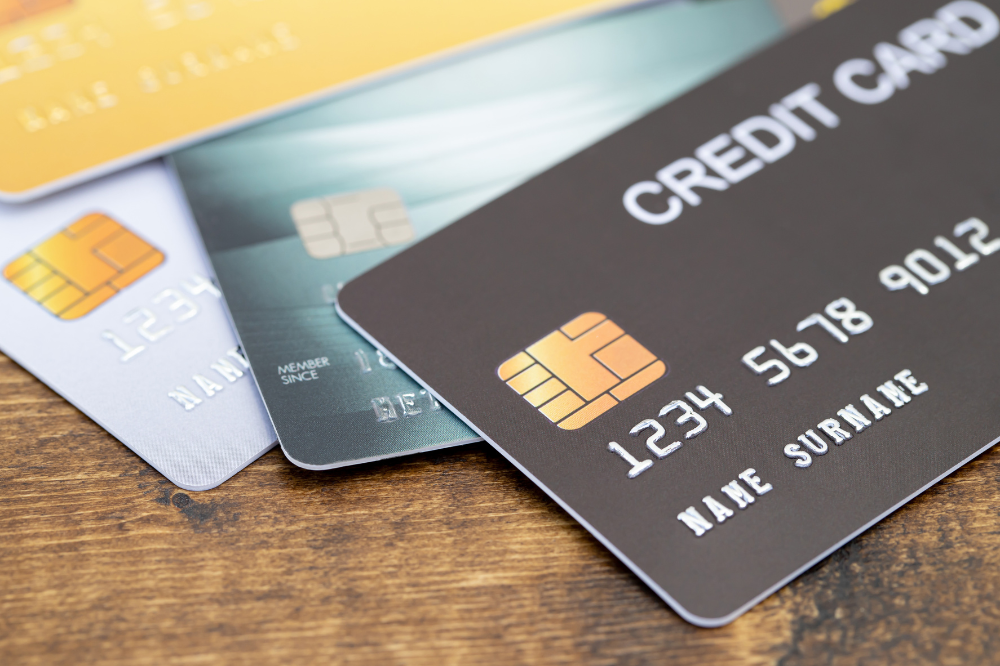Do you know how credit cards work? Want to know which one would be the best choice for you? Find that out now!
In today’s world, credit cards have become an essential part of many people’s financial lives. But for those who are new to the world of personal finance, understanding how credit cards work can be confusing. If you want to know how they work and which one could be the right choice for you and your needs, this blog post will help you.
At their core, credit cards are essentially short-term loans issued by a bank or financial institution. When you make a purchase using your credit card, you’re borrowing money from the issuer, up to a pre-set limit, to cover the cost. This borrowed amount, along with any accrued interest and fees, needs to be repaid within a specific timeframe, typically by the end of your billing cycle, to avoid incurring additional charges. So, you know what a credit card is, now it’s time to learn how it works!
How do credit cards work?
Essentially, you have 4 party model involved in the process of a purchase with a credit card. They are:
- Card Issuer: the bank or financial institution that provides you with the credit card and sets your credit limit, interest rate, and fees;
- Card Network: companies like Visa, Mastercard, and American Express that process transactions between the merchant and the issuer;
- Merchant: the store or business where you use your credit card to make a purchase;
- Cardholder: you, the individual who is authorized to use the credit card and is responsible for repaying the borrowed amount.
This process, which the 4 party is involved, consistis of:
- Swipe, Chip, or Dip: when you make a purchase at a physical store, you’ll either swipe your card through a reader, insert a chip, or tap it against a contactless terminal;
- Authorization: the merchant transmits the transaction information to the card network, which then forwards it to the issuer for authorization. The issuer verifies if your account is in good standing and has sufficient credit available to cover the purchase;
- Approval & Settlement: if approved, the issuer sends an authorization message back to the network, which then relays it to the merchant. The merchant then captures the funds electronically.
- Statement & Repayment: at the end of your billing cycle, you’ll receive a statement detailing your purchases, fees, and minimum payment due. It’s crucial to make at least the minimum payment by the due date to avoid late fees and potential damage to your credit score.
What credit card should I get?
Credit cards require responsible use to reap their benefits and avoid potential pitfalls. Here are some things you should consider before choosing the best credit card for you:
- Interest Rates: credit cards typically come with high interest rates. If you don’t pay your balance in full each month, interest will accrue on the remaining amount, making it progressively more expensive to pay off your debt;
- Fees: annual fees, balance transfer fees, cash advance fees, and foreign transaction fees are some common charges associated with credit cards. Carefully review the fee structure before applying for a card;
- Building Credit: responsible credit card use, meaning paying your bills on time and in full, can positively impact your credit score, which plays a crucial role in securing loans, mortgages, and other forms of credit in the future. However, overspending and carrying a high balance can have the opposite effect;
- Rewards Programs: many credit cards offer rewards programs that allow you to earn points, miles, or cash back on your purchases. Make sure to analyse which reward works best for you.
Credit Card vs. Debit Cards
While both of them offer convenient ways to make purchases, they function differently and have distinct advantages and disadvantages. Credit cards allow you to make purchases and then repay it later, typically with interest if not paid in full by the due date. Meanwhile, debit cards directly deduct funds from your checking account, functioning like an electronic version of cash, limiting your spending to the available balance and don’t affect your credit score.
- For online transactions: credit cards generally offer stronger fraud protection compared to debit cards, providing an extra layer of security for online purchases;
- For building credit: using credit cards responsibly and paying off balances in full each month can help establish a positive credit history.

